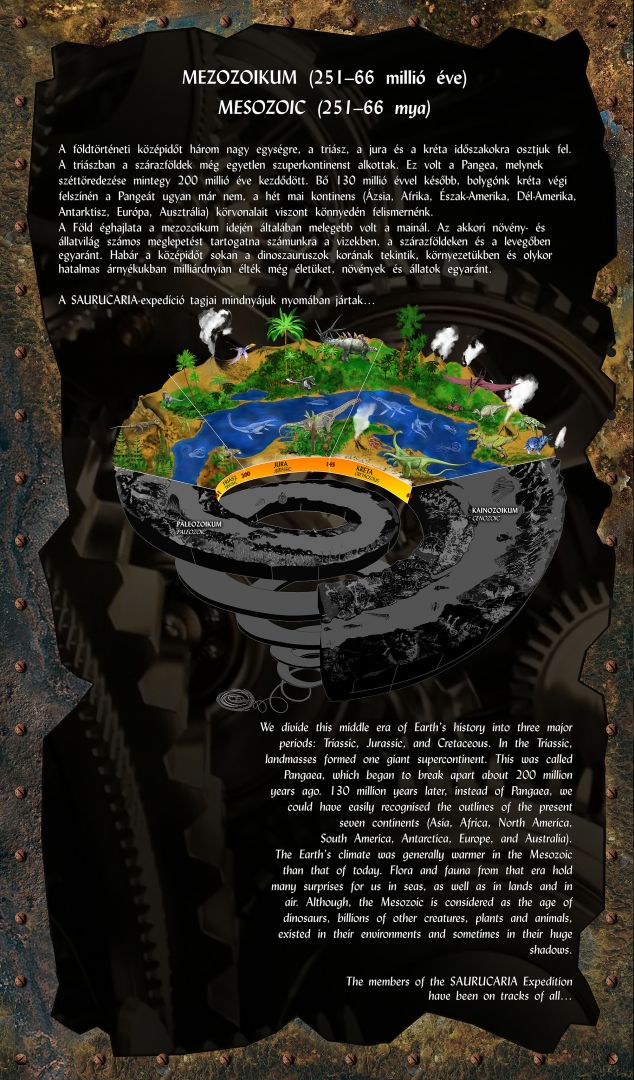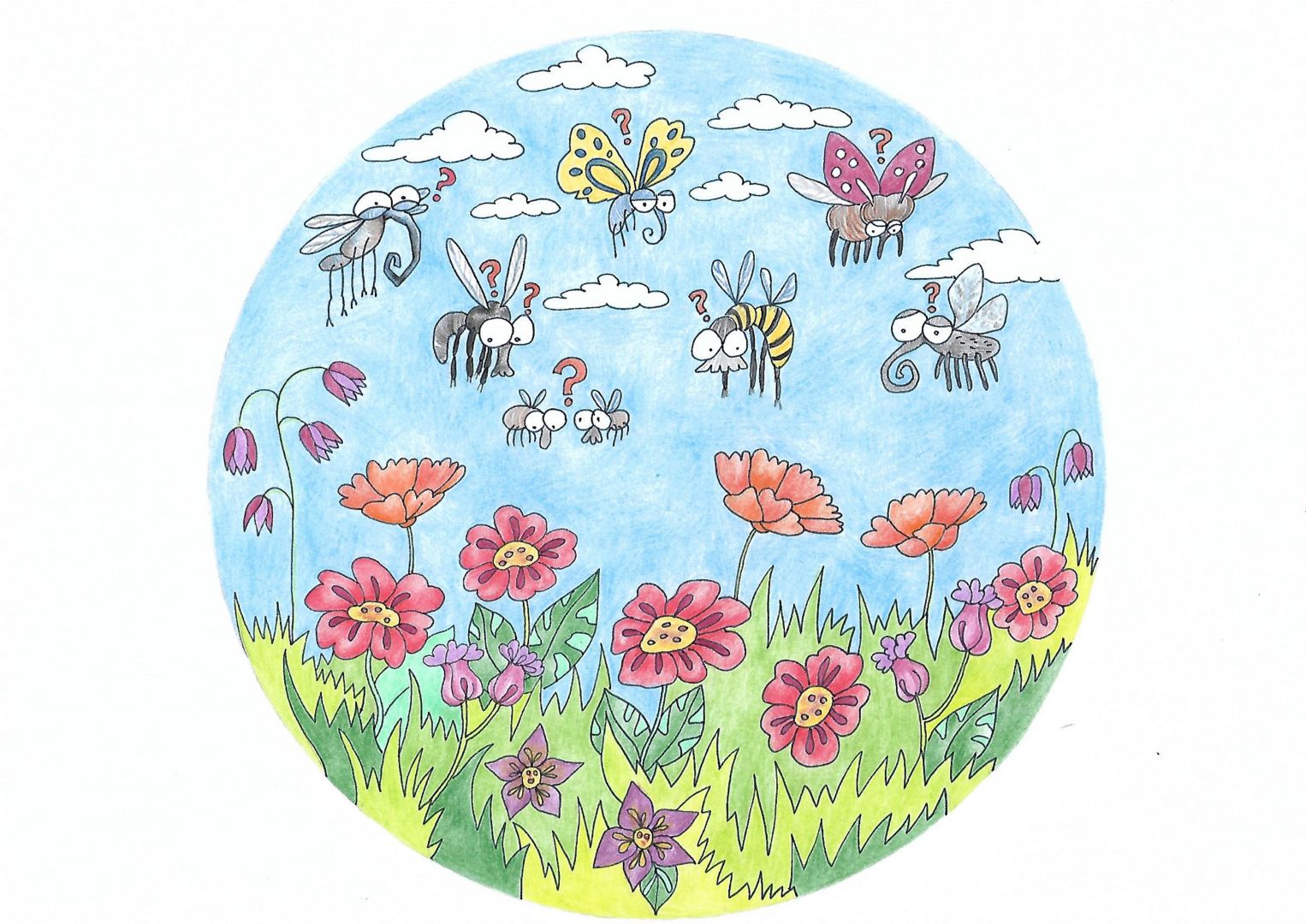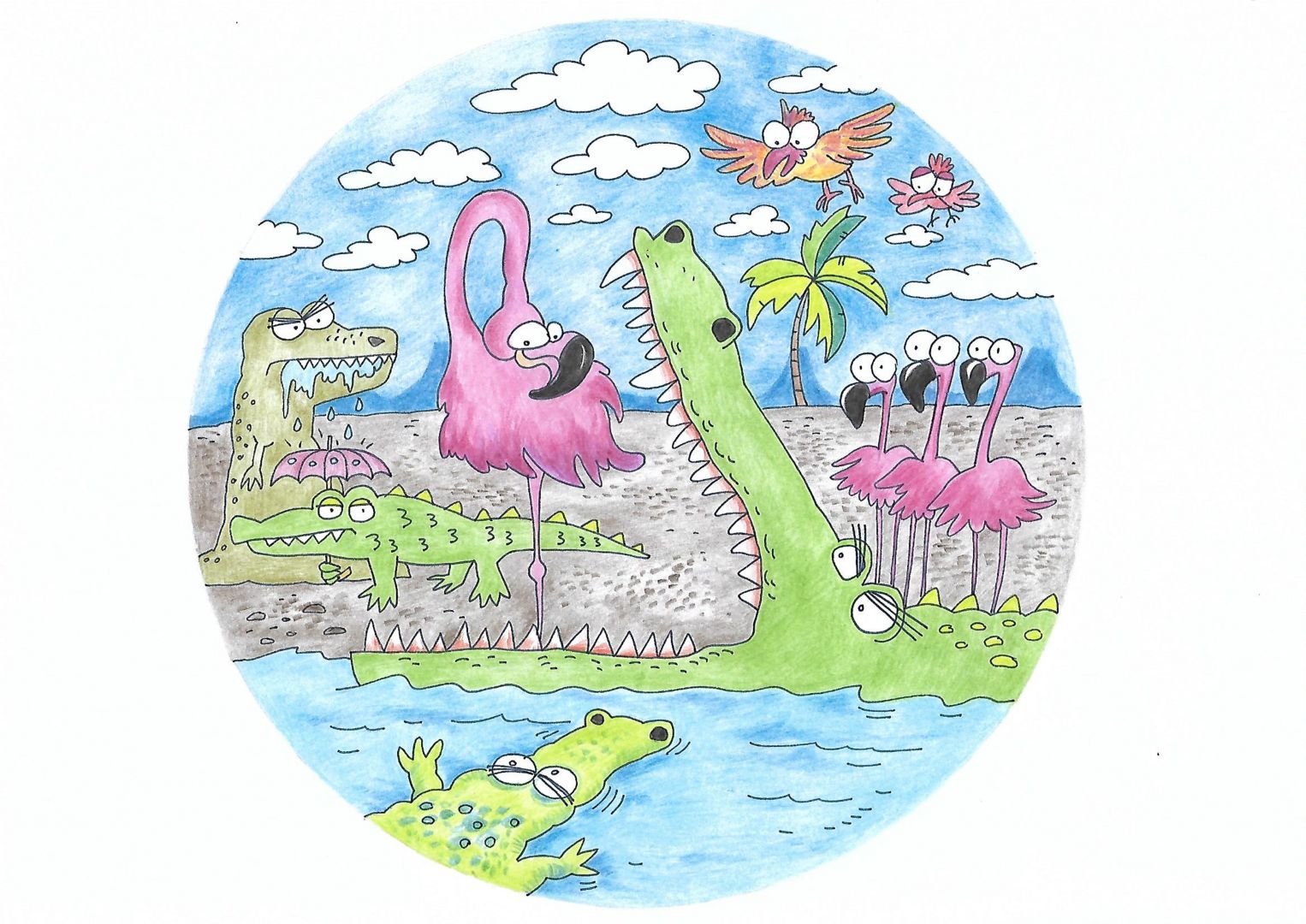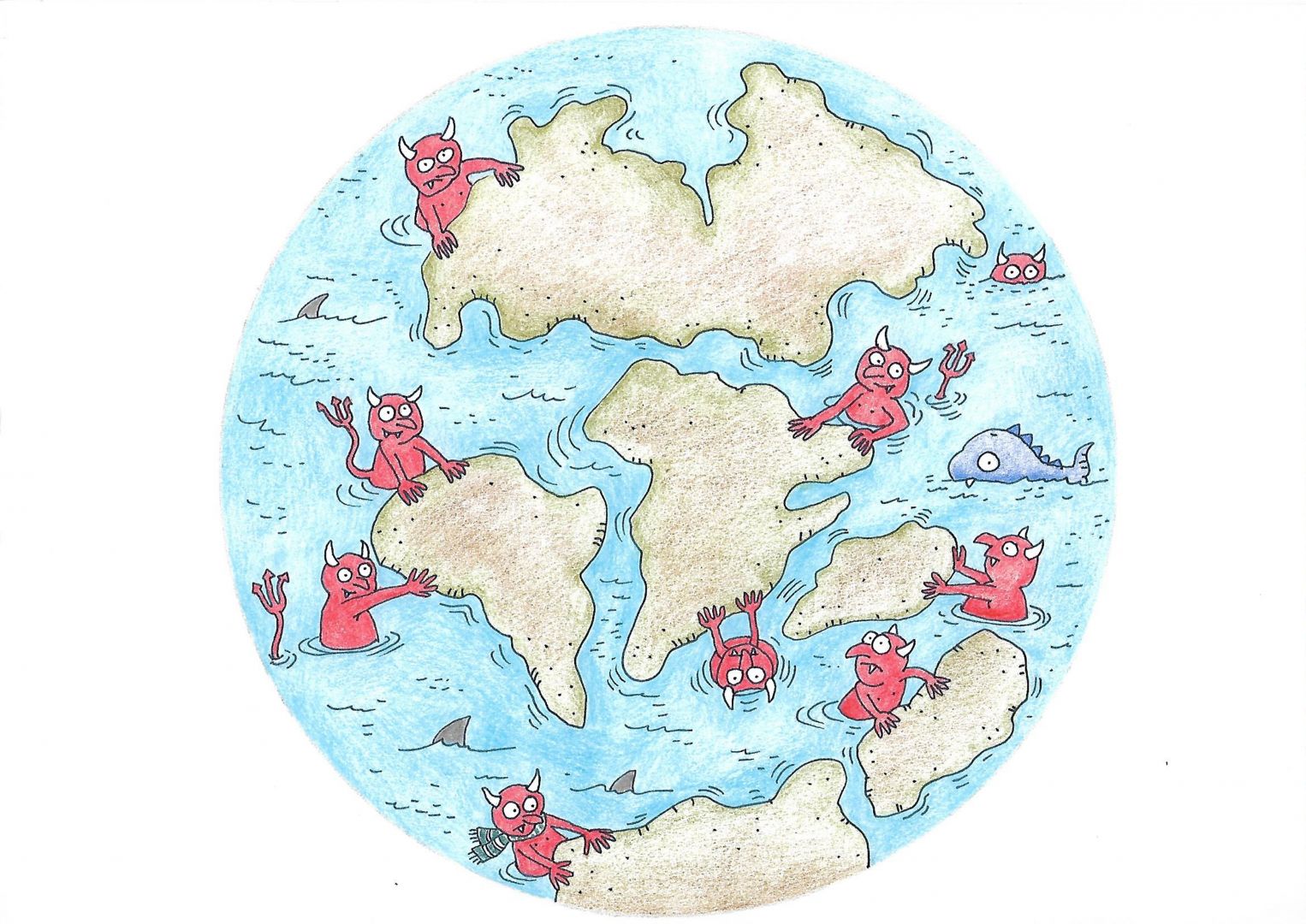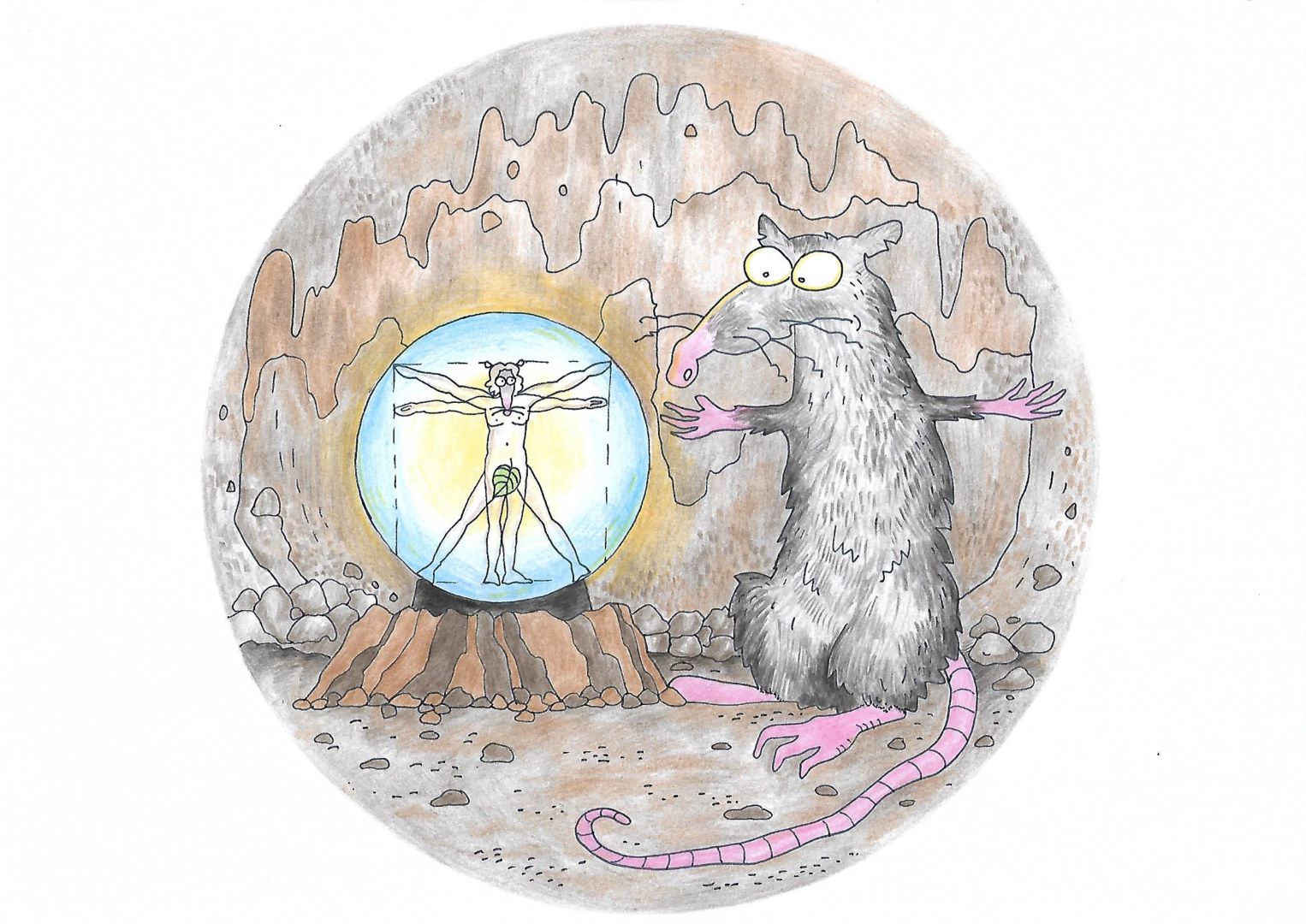MESOZOIC IN THE LAND OF DINOSAURS - INTRODUCTORY HALL
MESOZOIC (251–66 mya)
We divide this middle era of Earth’s history into three major periods: Triassic, Jurassic, and Cretaceous. In the Triassic, landmasses formed one giant supercontinent. This was called Pangaea, which began to break apart about 200 million years ago. 130 million years later, instead of Pangaea, we could have easily recognised the outlines of the present seven continents (Asia, Africa, North America,
South America, Antarctica, Europe, and Australia).
The Earth’s climate was generally warmer in the Mesozoic than that of today. Flora and fauna from that era hold many surprises for us in seas, as well as in lands and in air. Although the Mesozoic is considered as the age of dinosaurs, billions of other creatures, plants and animals, existed in their environments and sometimes in their huge shadows.
The members of the SAURUCARIA Expedition have been on tracks of all…
